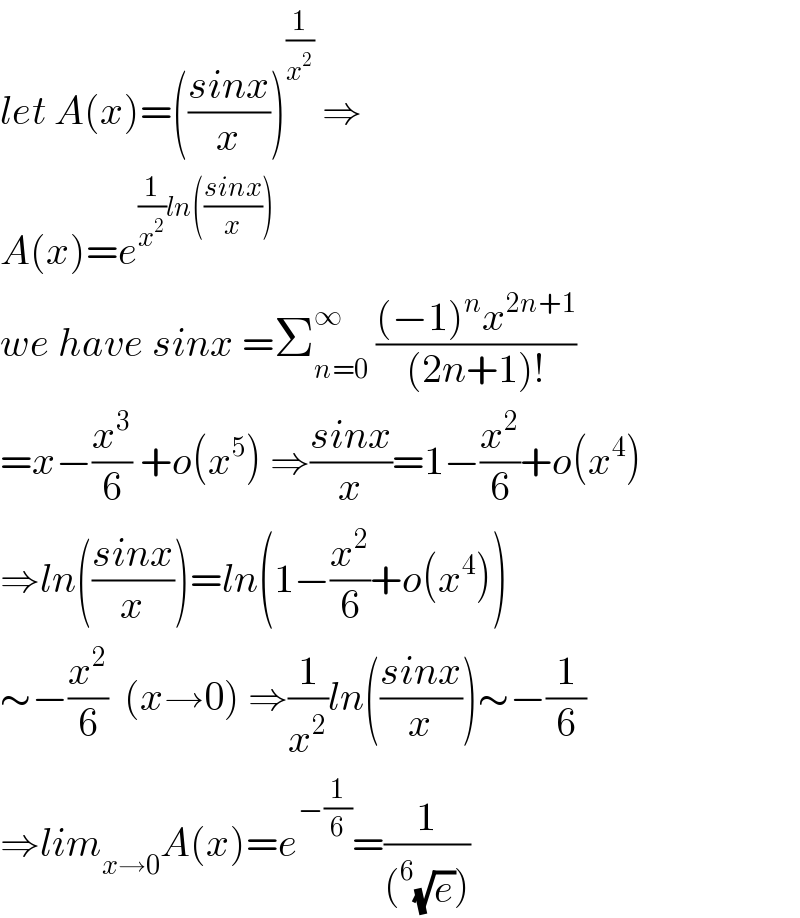
Question and Answers Forum
Question Number 72218 by aliesam last updated on 26/Oct/19

Commented by turbo msup by abdo last updated on 26/Oct/19

Commented by aliesam last updated on 26/Oct/19

Commented by mathmax by abdo last updated on 26/Oct/19

| ||
Question and Answers Forum | ||
Question Number 72218 by aliesam last updated on 26/Oct/19 | ||
 | ||
Commented by turbo msup by abdo last updated on 26/Oct/19 | ||
 | ||
Commented by aliesam last updated on 26/Oct/19 | ||
 | ||
Commented by mathmax by abdo last updated on 26/Oct/19 | ||
 | ||